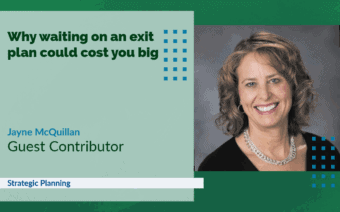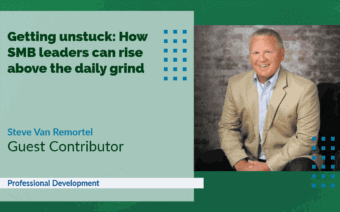August 10, 2023
Recently, I had a conversation with a former executive coaching client, Walter, who has become a friend of mine over the years.
We discussed the delights of grandparenthood, which is new to both of us, as well as his recent retirement.
Walter confided to me that most of his days include tasks, projects and social engagements that he enjoys, but he often struggles with feelings of irrelevance and sadness without the daily activity and demands of his former profession.
Walter had been the CEO of a thriving organization before retirement – a role that required him to be engaged, knowledgeable, innovative and resourceful every day.
He was the person making critical decisions and calling the shots when it mattered most.
Experiencing feelings of irrelevance
Now, several months after leaving his executive post, Walter is experiencing the loss of his identity as the person who countless people looked to for leadership; the absence of recognition for his accomplishments and contributions; and the loss of a sense of purpose without the structure of his professional routines and goals.
As an executive coach, I have helped dozens of leaders prepare for a variety of career transitions, including retirement.
Certainly, executive and career coaching services can be helpful in terms of planning for retirement, offering valuable insights for increased self-awareness, intentional decision-making, creating a plan and goal setting to maintain momentum.
However, there are times when individuals, like Walter, may benefit from additional post-retirement support from a counselor, therapist or other qualified advisor.
Such resources go beyond professional coaching by addressing the broader psychological aspects involved in transitioning to retirement.
Seeking helpful expertise
For some, managing various retirement-related changes all at once upon transitioning into retirement can seem overwhelming or confusing.
In the same manner that such people sought professional development throughout their careers, upon retirement, they can seek resources that provide knowledge, tools and insights for better adjusting to the post-career chapters of their lives.
Qualified counselors possess the expertise to address the changes and challenges that sometimes accompany retirement.
Counselors are adept at helping people transition successfully into retirement by supporting their efforts to:
Bid farewell to their work lives or careersAdjust to new relationship dynamics caused by spending more time with significant people in their personal livesAdopt any lifestyle changes necessary to accommodate or prevent possible health issuesResolve dormant issues from the past that are able to surface in a less busy mindCreate satisfying new routinesIdentify meaningful and fulfilling personal aspirations
Qualified counselors can also help people recognize and process any feelings of irrelevance, sadness, anxiety or uncertainty that can sometimes accompany the transition to retirement.
Moreover, counseling services can extend beyond retiring individuals to support their family members, as retirement often affects the dynamics of the entire family.
Choosing an efficient path to greater fulfillment
Sometimes, entry into retirement can be accompanied by a variety of emotions and uncertainties, despite the myriad of commercials and movies telling us to expect bliss and merriment when we get there.
If your reality is different from the commercials, do not hesitate to seek assistance to help you navigate the transition.
Your investment in a smooth transition by obtaining personalized support for addressing any unexpected emotional challenges may make all the difference in the way you and those around you experience this new chapter in your life.
You can look for recommendations regarding counselors, therapists or other qualified advisors via:
Your previous employer’s EAP program, if you still have access to thatYour primary healthcare providerRecommendations from friends or family membersA variety of online search services that help you find confidential local or nationwide (virtual) resources, such as betterhelp.com, zocdoc.com, the American Psychological Association locator at locator.apa.org or opencounseling.com which identifies free or low-cost counseling resources in your area
Retirement is not just an end to a career but an opportunity for new beginnings and self-discovery.
If it will help you be your best and most fulfilled retired self, choose to reach out to find the best resources for you.
 Chamber business survey: ‘Very positive news’ for 2025
Chamber business survey: ‘Very positive news’ for 2025 Popping its way to success in North Central Wisconsin
Popping its way to success in North Central Wisconsin








